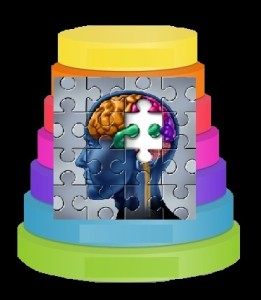Stages and Symptoms
Stages of Alzheimer’s & Symptoms

Alzheimer’s symptoms vary. The stages below provide a general idea of how abilities change during the course of the disease.
Stage 1: No impairment
Stage 2: Very mild decline
Stage 3: Mild decline
Stage 4: Moderate decline
Stage 5: Moderately severe decline
Stage 6: Severe decline
Stage 7: Very severe decline
Not everyone will experience the same symptoms or progress at the same rate.
Stage 1: No impairment (normal function) The person does not experience any memory problems. An interview with a medical professional does not show any evidence of symptoms of dementia.
Stage 2: Very mild cognitive decline The person may feel as if he or she is having memory lapses — forgetting familiar words or the location of everyday objects. But no symptoms of dementia can be detected during a medical examination or by friends, family or co-worker
Stage 3: Mild cognitive decline Friends, family or co-workers begin to notice difficulties. During a detailed medical interview, doctors may be able to detect problems in memory or concentration. Common stage 3 difficulties include:
- Noticeable problems coming up with the right word or name
- Trouble remembering names when introduced to new people
- Having noticeably greater difficulty performing tasks in social or work settings Forgetting material that one has just read
- Losing or misplacing a valuable object
- Increasing trouble with planning or organizing
Stage 4: Moderate cognitive decline (Mild or early-stage Alzheimer’s disease) At this point, a careful medical interview should be able to detect clear-cut symptoms in several areas:
- Forgetfulness of recent events
- Impaired ability to perform challenging mental arithmetic
- Greater difficulty performing complex tasks, such as planning dinner for guests, paying bills or managing finances
- Forgetfulness about one’s own personal history
- Becoming moody or withdrawn, especially in socially or mentally challenging situations
Stage 5: Moderately severe cognitive decline Gaps in memory and thinking are noticeable, and individuals begin to need help with day-to-day activities.
- Be unable to recall their own address or telephone number or the high school or college from which they graduated
- Become confused about where they are or what day it is
- Have trouble with less challenging mental arithmetic;
- Need help choosing proper clothing for the season or the occasion
- Still remember significant details about themselves and their family
- Still require no assistance with eating or using the toilet
Stage 6: Severe cognitive decline Memory continues to worsen, personality changes may take place and individuals need extensive help with daily activities. At this stage, individuals may:
- Lose awareness of recent experiences as well as of their surroundings
- Remember their own name but have difficulty with their personal history
- Distinguish familiar and unfamiliar faces but have trouble remembering the name of a spouse or caregiver
- Need help dressing properly and may, without supervision, make mistakes such as putting pyjamas over daytime clothes or shoes on the wrong feet
- Experience major changes in sleep patterns — sleeping during the day and becoming restless at night
- Need help handling details of toileting
- Have increasingly frequent trouble controlling their bladder or bowels
- Experience major personality and behavioural changes, including suspiciousness and delusions, compulsive, repetitive behaviour like hand-wringing or tissue shredding
Tend to wander or become lost
Stage 7: Very severe cognitive decline Final stage of this disease,
- Lose the ability to respond to their environment,
- Can not carry on a conversation
- Loose control movement making them unsteady on their feet
- They require help with their daily personal care, including eating or using the toilet.
- They may lose the ability to smile, to sit without support or to hold their heads up.
- Reflexes become abnormal.
- Muscles grow rigid.
- Swallowing impaired.
Information Source http://www.alz.org/alzheimers_disease_stages_of_alzheimers.asp?type=carecenter_footer
 Home Care To You Australia
Home Care To You Australia